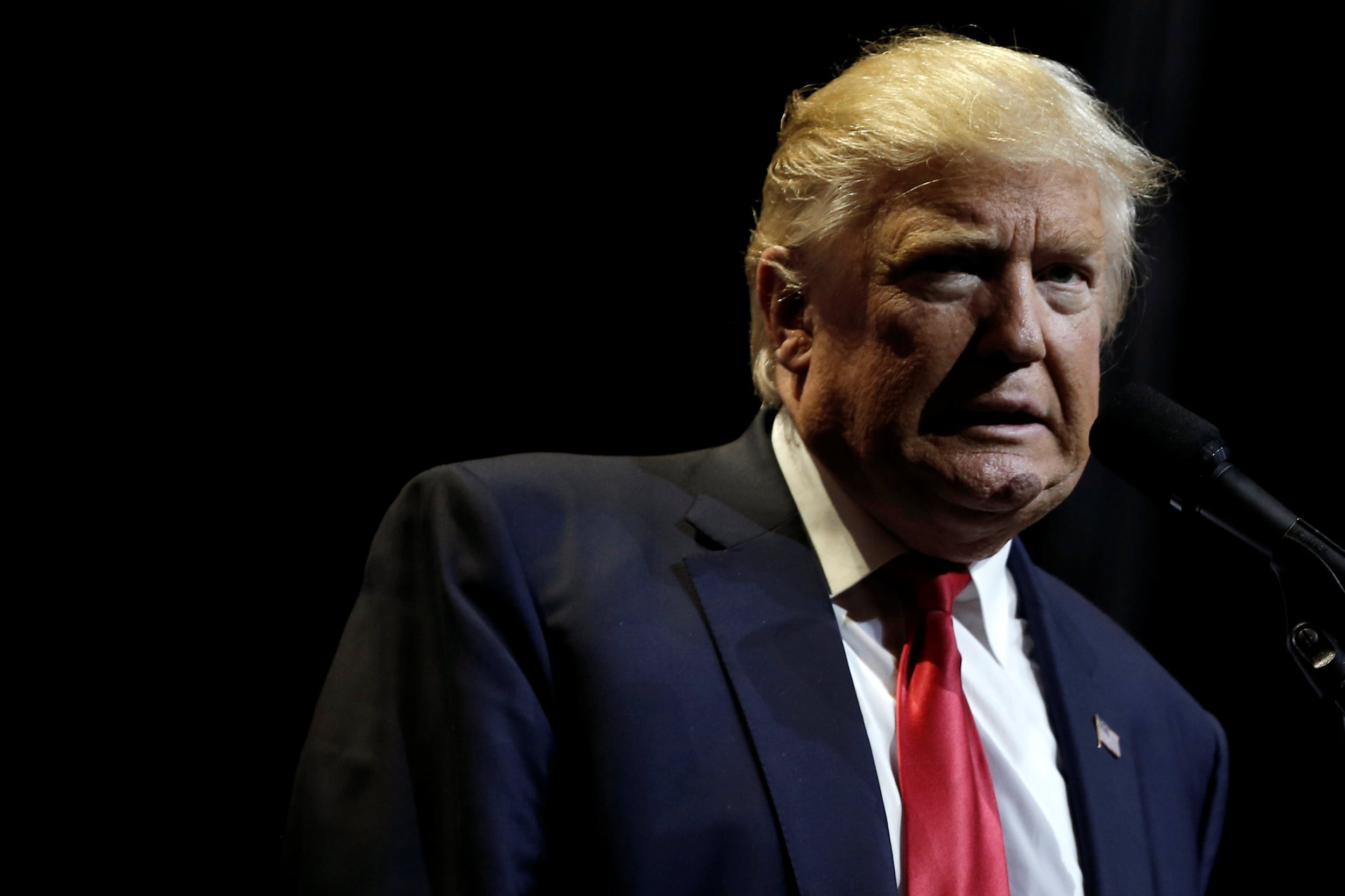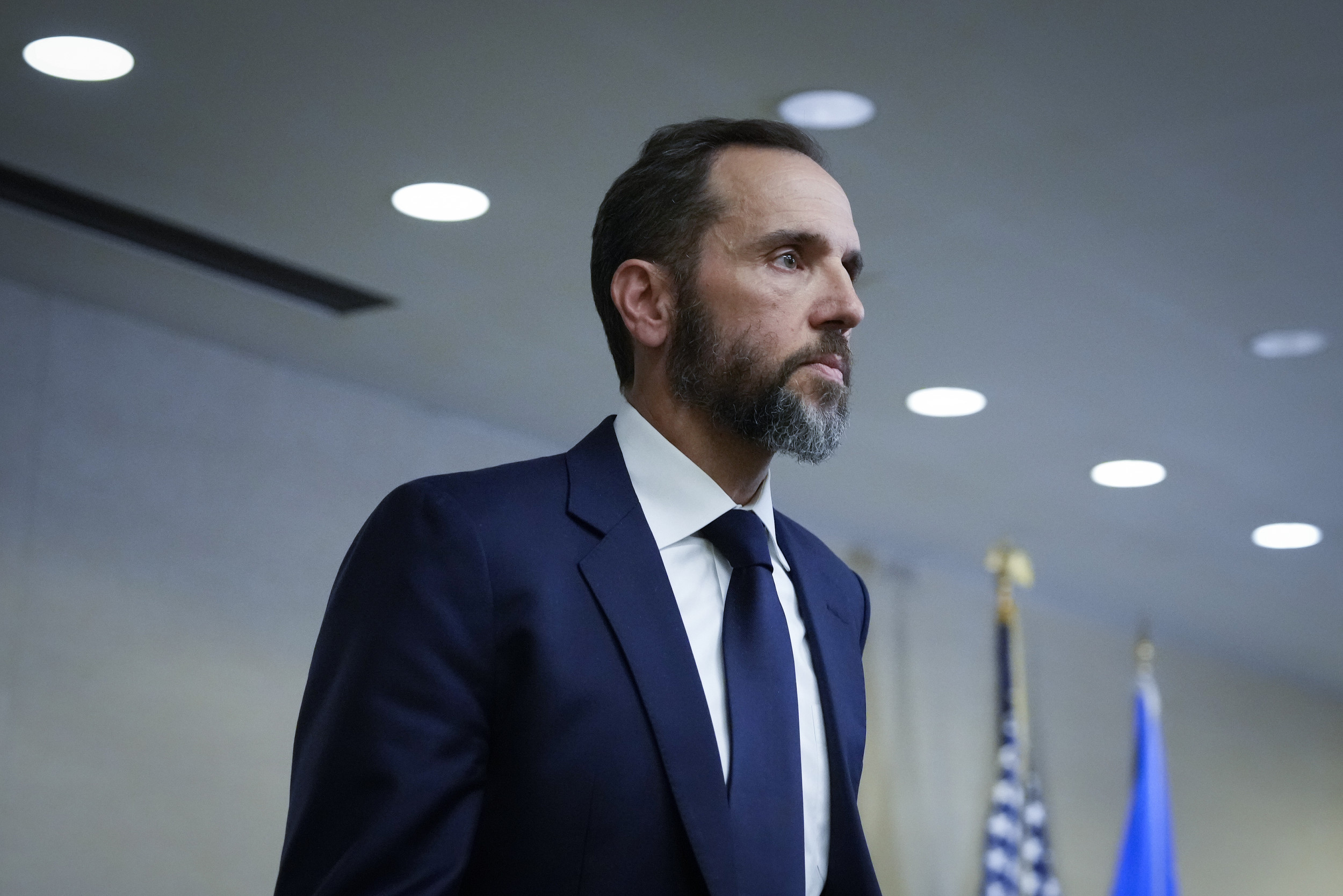
At a recent campaign rally, Donald Trump stated: "I am not running to be president of the world, just president of the United States."
That declaration shows how little Trump understands the world and America's role in it. For the past 70 years, the president of the United States has repeatedly been called "the leader of the free world." When World War II ended, the United States was the only major country to emerge stronger than when the war began, (which was also the case at the end of World War One).
The United States had a Navy and Air Force many times the size of all the rest of the world's navies and air forces combined. The Soviet Union was the only country with a larger army.
The American economy was not damaged like those of its allies and adversaries, but rather grew stronger, thanks to the war. Over the course of the next 70 years, that fundamental fact has not changed. The U.S. economy has had its ups and downs, but America still boasts the largest economy in the world, and its armed forces remain many times the size of the next largest.
In 1630, when Boston was founded, its new governor, John Winthrop, professed: "We shall be as a city upon a hill, the eyes of all people are upon us."
John F. Kennedy called forth Winthrop's proclamation. Just before his presidential inauguration, JFK cautioned: "We must always consider that we shall be as a city upon a hill—the eyes of all people are upon us".
On the campaign trail in 1980, Ronald Reagan once again invoked Winthrop's affirmation, declaring, "I believe that Americans in 1980 are every bit as committed to that vision of a shining 'city on a hill,' as were those long ago settlers."
President Reagan returned to profess Winthrop's worldview in his farewell address. Reagan spoke about how he saw the city:
But in my mind, it was a tall, proud city built on rocks stronger than oceans, windswept, God-blessed and teeming with people of all kinds living in harmony and peace; a city with free ports that hummed with commerce and creativity.
And if there had to be city walls, the walls had doors and the doors were open to anyone with the will and the heart to get here. That's how I saw it, and see it still.
That perspective, of the United States being a special place, has been an essential part of the American ethos since the time of the Pilgrims. In the early days of American history, the U.S. could only impact the rest of the world by example. The French Revolution and the subsequent revolutions in South America, were all spawned—to a greater or lesser degree—by the example of the American Revolution.
By the mid-1800s, the Monroe Doctrine had become an accepted part of world diplomacy and guaranteed that European powers would not interfere in the internal affairs of the Western Hemisphere.
America's lopsided victory over Spain in the Spanish-American War in 1898 underscored the fact that the U.S. was a power to be reckoned with on the world stage. By the end of the World War I, the centrality of the U.S. in the world order was clear.
Many blame the events that led to World War II, in part, on the U.S. turning inward after a policy of "America First" in the interwar years. When the war ended, the bipartisan leadership of the United State vowed that this time the U.S. would remain on the world stage.
The United States was midwife to international organizations like the United Nations, the International Monetary Fund and the World Bank. In the years that followed, the world has continued to look for leadership from the United States.
It's no wonder that President Obama was awarded the Nobel Peace Prize—before doing anything—just based on the hopes he would lead the world to new and better places. The actions of the United States might not always been beloved. But America has remained the world's leader.
The 2016 presidential election is being reported extensively throughout the world—sometimes even more closely than their own elections. In Israel, the U.S. presidential debates were carried live by all three major networks. Even though it was 4 a.m. in Israel, the three main news shows achieved a 6.0 rating, which means that almost 6 percent of Israeli adults had been watching.
The morning after both presidential debates, the streets of Tel Aviv were full of bleary-eyed residents talking about the most recent match of wits and its potential impact on the race.
Usually, the U.S. presidential election provides an excellent lesson in civics for students the world over. This year, teachers are much more reluctant to make use of the U.S. election as an example of anything positive. The campaign has, by all accounts, been an embarrassment to the United States and civics teachers alike.
America's role in the world is an important matter which should be a central point in any Presidential election campaign. Unfortunately, other than glib slogans like "Making American great again," "America is great, because it's good," or "We will defeat ISIS," there has been no serious discussion about foreign policy.
That raises important questions about America's continued role in the world. What does it mean today to be that "shining city on the hill?" What burdens are Americans willing to carry to maintain that status? For the first time since Franklin Roosevelt, it is not at all clear.
Marc Schulman is the editor of HistoryCentral.com.
Uncommon Knowledge
Newsweek is committed to challenging conventional wisdom and finding connections in the search for common ground.
Newsweek is committed to challenging conventional wisdom and finding connections in the search for common ground.





